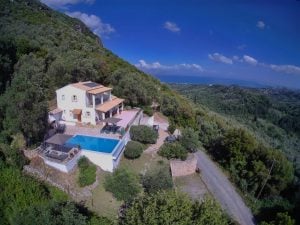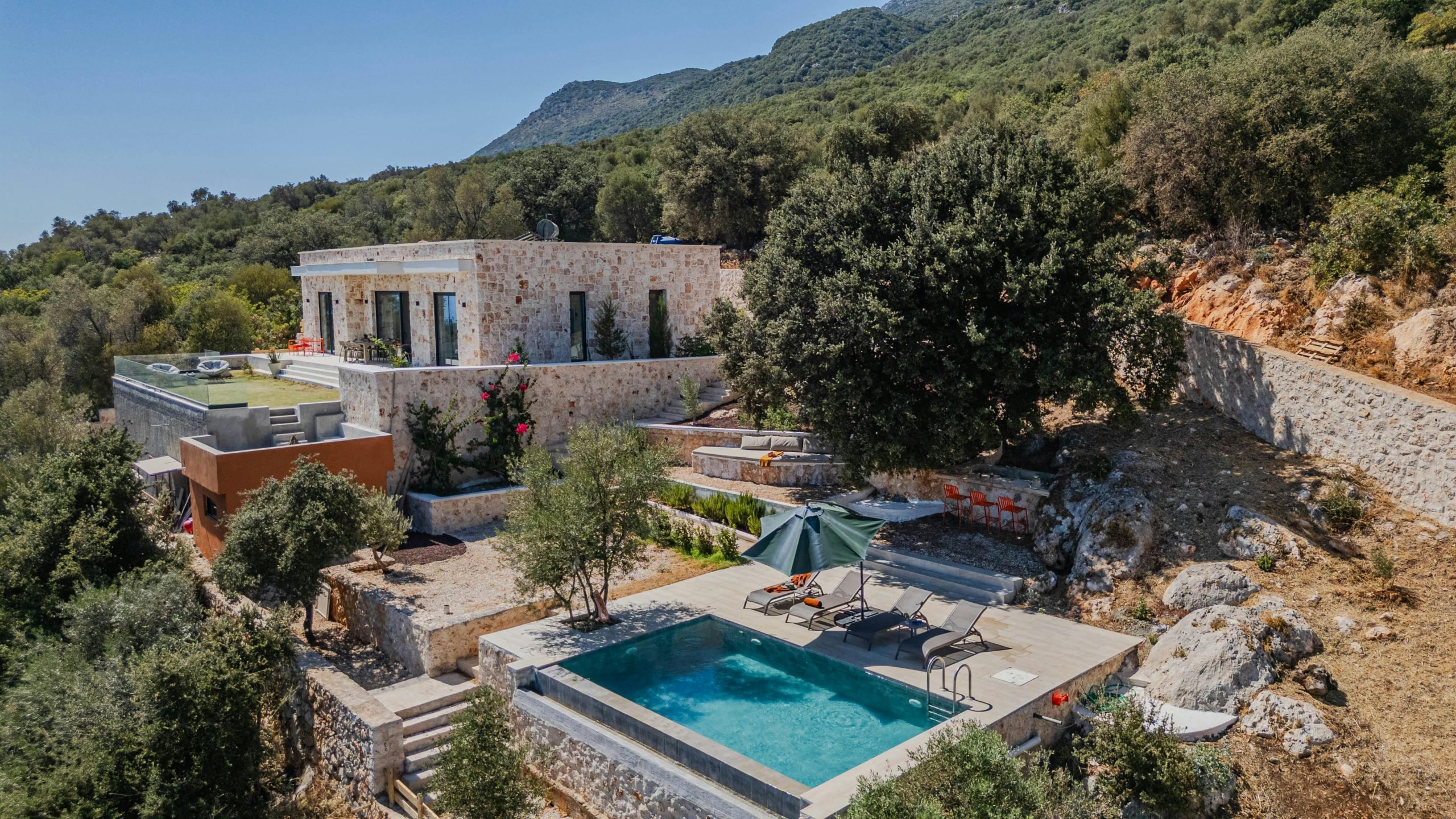The Peloponnese enjoys a Mediterranean climate during summer months, characterised by warm, dry conditions with average temperatures ranging from 25-30°C along the coast and slightly higher inland. The region experiences minimal rainfall from June through August, abundant sunshine, and refreshing sea breezes that make it exceptionally comfortable for both residents and visitors.
Understanding Peloponnese’s summer climate for property buyers
The Peloponnese peninsula benefits from a classic Mediterranean climate that creates ideal conditions for property ownership and investment. Summer months bring consistently warm temperatures, low humidity, and minimal precipitation, establishing a stable weather pattern that appeals to international buyers seeking reliable conditions for their Greek property ventures.
Understanding these climate characteristics proves crucial for property investment decisions, as the predictable summer weather directly impacts rental potential, maintenance requirements, and overall enjoyment of vacation homes. The region’s weather stability makes it particularly attractive for those planning extended stays or considering permanent relocation.
Property buyers benefit from knowing that the Peloponnese’s summer climate supports outdoor activities, reduces heating and cooling costs, and creates optimal conditions for property maintenance and improvements during the warmer months.
What are the typical temperatures in Peloponnese during summer?
Summer temperatures in the Peloponnese typically range from 25-30°C during the day along coastal areas, with nighttime temperatures dropping to a comfortable 18-22°C. Inland regions experience slightly higher daytime temperatures, often reaching 32-35°C, particularly in July and August.
Coastal areas benefit from moderating sea influences that keep temperatures pleasant throughout the summer season. Popular coastal destinations like Kalamata, Nafplio, and the Mani Peninsula maintain comfortable conditions with sea breezes providing natural cooling during the hottest parts of the day.
The temperature variations across different areas make the Peloponnese suitable for various preferences, whether you prefer the slightly cooler coastal climate or the warmer inland conditions that many find ideal for traditional Mediterranean living.
How much rainfall does Peloponnese receive in summer months?
The Peloponnese receives minimal rainfall during summer, typically less than 20mm per month from June through August. This dry period characterises the Mediterranean climate pattern, with most precipitation occurring during winter months.
Occasional brief thunderstorms may occur during summer evenings, particularly in mountainous inland areas, but these are generally short-lived and often welcomed for their cooling effect. These storms rarely disrupt outdoor activities or property maintenance schedules.
The dry summer conditions mean property owners can confidently plan outdoor renovations, garden maintenance, and exterior improvements during these months without weather-related delays or complications.
What is the difference between coastal and inland summer weather in Peloponnese?
Coastal areas of the Peloponnese enjoy moderating sea breezes that keep temperatures 3-5°C cooler than inland regions during summer days. Humidity levels remain comfortable along the coast due to these maritime influences, whilst inland areas can experience drier, hotter conditions.
The sea breeze effect becomes particularly noticeable during afternoon hours, when coastal properties benefit from refreshing winds that make outdoor terraces and gardens more comfortable for extended use. This natural air conditioning effect adds significant value to coastal property investments.
Inland mountainous regions, whilst warmer during the day, often experience more dramatic temperature drops in the evening, creating pleasant conditions for outdoor dining and entertainment after sunset.
How does summer weather in Peloponnese compare to other Greek regions?
The Peloponnese offers similar temperatures to Crete but with slightly less intense heat than some Aegean islands. Compared to northern Greece, the peninsula enjoys warmer, more stable conditions with greater sunshine hours and less rainfall variability.
The region’s weather patterns prove more predictable than many Greek islands, which can experience stronger winds or sudden weather changes. This stability makes the [Peloponnese](https://elxis.com/buying-a-home-in-greece-the-ultimate-guide/) particularly attractive for property buyers seeking consistent conditions.
Unlike some popular island destinations that can become uncomfortably hot during peak summer, the Peloponnese maintains pleasant conditions throughout the season, supported by its varied topography and coastal influences.
Why is Peloponnese’s summer climate ideal for property ownership?
The region’s stable, warm, and dry summer weather creates perfect conditions for vacation homes and rental properties. Property owners can confidently market their investments knowing that guests will experience consistently pleasant weather during peak tourist seasons.
The minimal rainfall and abundant sunshine reduce maintenance concerns typically associated with humid or unpredictable climates. Exterior paintwork, wooden features, and garden installations last longer in these dry, stable conditions, reducing long-term property maintenance costs.
For year-round living, the comfortable summer climate supports outdoor lifestyle activities, reduces energy costs for cooling, and creates ideal conditions for growing Mediterranean gardens and maintaining outdoor entertainment areas.
Key weather considerations when buying property in Peloponnese
Property buyers should evaluate seasonal weather patterns when selecting locations, considering factors such as prevailing wind directions, sun exposure, and proximity to cooling sea breezes. These elements significantly impact daily comfort and long-term property enjoyment.
Understanding microclimates within different areas helps buyers choose properties that align with their preferences for temperature, humidity, and wind exposure. Coastal properties offer cooling breezes but may require more maintenance due to salt air exposure.
The predictable summer weather patterns support strong rental potential, as visitors can confidently book holidays knowing they’ll experience reliable Mediterranean conditions. This weather stability contributes to sustainable investment returns and property appreciation over time.
For those considering property investment in this remarkable region, professional guidance ensures you select locations that maximise the benefits of the excellent summer climate. Feel free to [contact](https://elxis.com/contact-us/) us for expert advice on finding the perfect property that takes full advantage of the Peloponnese’s exceptional weather conditions.


































